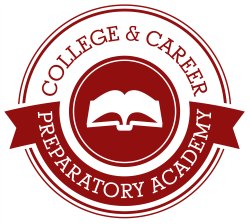Kirstie Suarez’s family moved several times when she was in high school, bouncing between California, North Carolina and Florida before Suarez took her final classes at Saddleback High School in Santa Ana.
Somewhere along the way, she fell two classes short of graduating.
 Five years later, Suarez has made up that ground, and rather quickly, thanks to the College and Career Preparatory Academy, a brand new charter school approved by the Orange County Board of Education to assist young adults in need of a diploma or a path to higher learning.
Five years later, Suarez has made up that ground, and rather quickly, thanks to the College and Career Preparatory Academy, a brand new charter school approved by the Orange County Board of Education to assist young adults in need of a diploma or a path to higher learning.
“I work full time, so I don’t have a lot of time to be taking extra classes,” said Suarez, 23. “I walked in that first day and they immediately gave me assignments.”
Administered by the Orange County Department of Education, the College and Career Preparatory Academy represents a first of its kind for the county. It’s designed to fill gaps in services currently available to young men and women who are 18 to 25 years old and have aged out of the school system but still need to complete their graduation requirements.
Data shows more than 100,000 match this profile in Orange County alone. Despite an 85.3 percent graduation rate, more than 4,000 local students leave high school each year without their diplomas.
The College and Career Preparatory Academy offers them a way back, providing much needed flexibility to pursue lost credits at no cost. But it isn’t just about finishing high school. The academy also prepares students for college and career success, says Director Byron Fairchild.
“This program supports re-engagement in learning and workforce preparation,” Fairchild says. “It’s about expanding options within our county and strengthening the bridge connecting K-12 education, adult education and higher education to prepare students for productive workforce and career opportunities.”
The College and Career Preparatory Academy began operations in the fall, welcoming its first students on Sept. 9 from a single storefront building in Santa Ana. Word of mouth has since swelled enrollment to about 100 with two additional sites — one in Anaheim and a second Santa Ana location — but school leaders have much bigger ambitions. Additional locations are planned for the west, central and south regions of the county, and Fairchild says the school is capable of serving up to 1,200 students.

Teacher Dinah Ismail has been with the academy from the beginning. She says what’s most unique about the program is that it’s highly customizable to fit the busy lives of its students.
“These are often full-time parents, students who work full time, students who work graveyard shifts, so the flexibility of this program is something they’re very grateful for,” she said.
Most who enroll study at home with the help of an online learning tool called GradPoint, a product offered by Pearson Education. They then visit the academy for an hour or more a week for additional support and tutelage. Those who don’t have a computer can work from textbooks, and some have the option of checking out a laptop. Ismail said mobile hotspots will soon be added to the menu of available technologies for students without reliable Internet connections.
Suarez, who works full time for a local public agency, said she was able to complete two courses in about a month.
“The flexibility, that was my main concern,” she said. “I was able to take classes online after work and during lunch. I was very focused.”
Ismail says it’s all about customizing instruction to meet the needs of each student. If that means talking over the phone or exchanging text messages to explain specific lessons, so be it.
“It’s amazing. I’ve been in education in one way or another for 20 years, teaching for 13, but this is my favorite assignment because my students are at such a pivotal and awesome age in their lives,” Ismail said. “They’re coming back and figuring out what they want to do with their careers and their lives and their educational paths. I feel very lucky to be a part of that process and to help navigate that path with them.”
Data would indicate students who go back to get their diplomas are making a very wise decision. According to the U.S. Census Bureau, the average high school dropout earns $20,241 dollars annually, or $10,386 less than a high school graduate. (That’s about $36,424 less than a college graduate per year.) Fairchild and his team are acutely aware of these numbers.
“This charter is unique to our county in specifically targeting this out-of-school youth population in an attempt to reduce the number of young adults without a high school diploma,” Fairchild said. “The pairing of education, job readiness and workforce preparation is the key combination to motivate and guide students through the process of earning a high school diploma and pursuing a college and career pathway.”
The doors are open. Now it’s just about getting the word out.
“A lot of the students are telling their friends, neighbors and family because they know other people who are in similar situations,” Ismail said. “There are probably a lot of other students in the county who could benefit from this but don’t know about it.”
For more information about the College and Career Preparatory Academy, including enrollment options, call Sandra Quintanilla at 714-245-6417.
